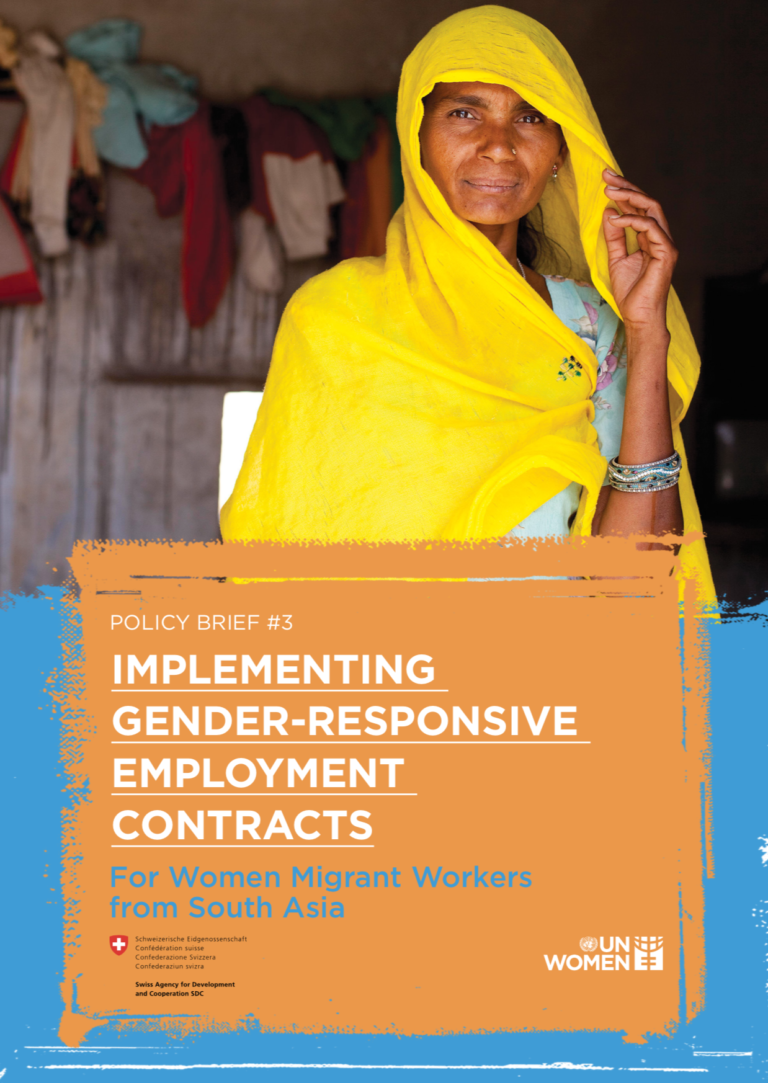“Implementing Gender-Responsive Employment Contracts” analyses current methods used to monitor the implementation of contracts and makes recommendations to strengthen accountability against the terms of employment contracts.
This article is the third part of a three-part Policy Brief series that identifies actions to develop and implement effective, rights-based and gender responsive protections for women workers migrating from South Asia to the Middle East. The policy briefs address three key stages during which protections for women migrant workers are developed, implemented, and monitored.
This policy brief series forms one part of the “Empowering Women Migrant Workers from South Asia: Toolkit for Gender-responsive Employment and Recruitment” which supports gender-responsive policies and practices to protect and promote the rights of women migrant workers from South Asia.

